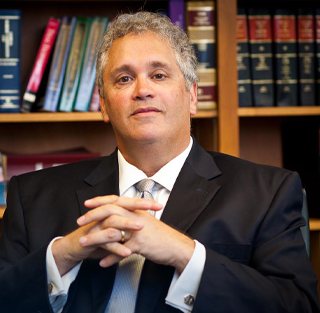Table of Contents
- What is Uninsured or Underinsured Motorist Insurance Coverage?
- No-Fault vs. At-Fault States
- Why is Uninsured Motorist Coverage Required?
- What are the Georgia Laws Regarding Uninsured Motorist Insurance Coverage?
- Collecting Damages in an Uninsured Motorist Claim
- Examples Where Uninsured Motorist Coverage Comes Into Play
What is Uninsured or Underinsured Motorist Insurance Coverage?
Uninsured Motorist Coverage (UM Coverage) is a separate type of insurance coverage you can purchase from your automobile liability insurer in addition to your general liability coverage.
Uninsured (UM)/underinsured (UIM) motorist coverage is among the best things you can do to protect the financial well-being of you and your family. Uninsured Motorist Coverage protects you in the event you are injured by another driver who has no insurance at all, or insufficient insurance to fully cover the amount of your damages. UM/UIM coverage is auto insurance you pay for in the event you are hurt by an at-fault driver who:
- Is not insured.
- Is not identified in a hit-and-run accident.
- Does not have adequate insurance to cover the full extent of your losses.
No-Fault vs. At-Fault States
The concept of No-Fault vs. At-Fault is related to how insurance companies process claims for motor vehicle accidents.
No-Fault States
In No-Fault states, each driver’s individual insurance company is responsible for covering their policyholder’s damages and injuries, regardless of which of the drivers was deemed at-fault in the accident. If you are involved in an accident in a no-fault state, you would file a claim with your own insurance company, who would then pay for your damages and injuries up to your policy limit.
At-Fault States
In At-Fault states such as the State of Georgia, the driver who caused the accident’s insurance company is responsible for paying for the damages or injuries suffered by the plaintiff. In the event you are injured in an accident inside the borders of an at-fault state and the other driver was at fault, you would file a claim with the other driver’s insurance company to cover the costs of repairs, medical bills, and other expenses.
Why is Uninsured Motorist Coverage Required?
The Insurance Research Council reports 14 percent of drivers nationally doesn’t have auto insurance.
The scenario of “Georgia car accident-no insurance-not at-fault” is more common than one might surmise, even considering Insurance Information Institute reports 12 percent of licensed Georgia are uninsured, lower than the national average. Yet Georgia road users face an outsized risk of uninsured drivers, thanks at least in part to what our Atlanta car accident attorneys refer to as “the Florida Factor.”
To be fair, it’s not all Florida’s fault. The Sunshine State is a prime East Coast tourist destination, and as geography would have it, huge numbers of out-of-state visitors traverse Georgia highways to get there. Georgia undeniably reaps an economic benefit from this, but it does come at a price on our roads. Beyond that, Florida itself, population 21 million-and-counting, has the No. 1 highest rate of uninsured motorists in the country – nearly 27 percent.
What are the Georgia Laws Regarding Uninsured Motorist Insurance Coverage?
Required Minimum Uninsured Motorist Coverage
In accordance of Georgia law (O.C.G.A. § 33-7-11), all automobile drivers in Georgia are required to purchase and maintain a minimum of $25,000 per person and $50,000 per accident in vehicle liability coverage. The purpose of this requirement is to protect other drivers in the event of a wreck caused by the insured driver.
Stacked vs. Unstacked Uninsured Motorist Coverage
Georgia law (O.C.G.A. § 33-7-11) also provides motorists the option of purchasing uninsured motorist coverage either stacked or unstacked.
- Stacked coverage allows for recovery from both $25,000 policies. Because UM/UIM coverage is meant to protect motorists in the event a driver has no insurance or lacks adequate insurance, stacked coverage offers better protection.
- Unstacked UM/UIM policies will only pay an award over and above policy limits of an at-fault driver – and even then only if you are carrying higher limits. For example, if you have $25,000 UM/UIM and the at-fault driver has $25,000 bodily injury, $25,000 is the maximum amount of insurance money available — even if you get a $50,000 verdict!
Changes to the law in 2008 allowed insurance companies to create confusion while reducing claims. Still, for purposes of a hit-and-run accident in which the at-fault driver is never located, either of these policies will pay benefits up to the policy limits.
Before Jan. 2009, O.C.G.A. § 33-7-11(b)(1)(D) permitted damages under a UM policy only to the extent the total amount of UM coverage exceeded the total amount of liability coverage available to the at-fault driver. Dewberry v. State Farm Mutual Auto Insurance Company, 197 Ga. App. 248, 249, 398 S.E.2d 266 (1990).
Collecting Damages from Uninsured Motorist Claims
AAA reports a hit-and-run accident now occurs every minute in the United States. Nearly 700,000 of these accidents occur annually, claiming more than 2,000 lives. Two-thirds of fatal accidents involved bicyclists or pedestrians.
Because of Georgia’s required Uninsured Motorist Coverage mandate, if you are in a wreck in which another uninsured driver is at-fault, you should have a minimum of $25,000 available from the other driver’s insurance company to compensate you for your:
- Medical treatment
- Pain and suffering
- Lost wages
- Other damages you may incur as a result of the other driver’s negligence
The unfortunate reality is that victims of car wrecks often suffer more than $25,000 in damages. If the driver who hit you has only the $25,000 minimum limits, you will not be able to collect anything above that $25,000 policy unless you elect to pursue the other driver’s personal assets — a task which is extremely time-consuming, tedious, and almost always proves fruitless since drivers with minimum coverage usually do not have sufficient finances or assets to pay anything above their $25,000 insurance limits.
Therefore, you may have no practical chance of being made whole for your damages—unless you have underinsured or uninsured motorist coverage.
Further Reading: Responding to Car Accident Lowball Insurance Settlement Offers
Examples Where Uninsured Motorist Insurance Coverage Comes Into Play
At-Fault Driver Has Minimum Required UM Coverage
Driver A is hit by Driver B. Driver B is found at-fault for causing the wreck. Driver A suffers $40,000 in medical treatment, pain and suffering, and lost wages as a result of the wreck. Driver B has only the minimum liability policy limits of $25,000. Driver A collects the $25,000 from Driver B’s policy, but Driver A still has an additional $15,000 in damages for which he has not been compensated. Driver A has no UM coverage. Therefore, Driver A is unable to collect the remaining $15,000 and cannot be made whole for his injuries.
At-Fault Driver is Underinsured for Damages Incurred
Now consider the same scenario as above, but this time, instead of having no UM coverage, Driver A has $50,000 in UM coverage. Driver A suffers $40,000 in damages. Driver B’s insurer pays the $25,000. Driver A may then pursue a claim against his own UM insurer for the remaining $15,000. Thus, driver A is made whole despite Driver B being “underinsured.”
At-Fault Driver Has No Insurance at All
In another example, we see how UM coverage operates to compensate an injured party where the at-fault driver has no insurance at all:
Driver A is hit by Driver B. Driver B is found at fault for causing the wreck. Driver A suffers $30,000 in medical treatment, pain and suffering, and lost wages as a result of the wreck. Driver B has no insurance at all. Driver A has no UM coverage. Therefore, Driver A is unable to collect anything at all for his injuries.
Injured Plaintiff Has More than Minimum Required Coverage
Now consider the same scenario as above, but this time, instead of having no UM coverage, Driver A has $50,000 in UM coverage. Driver A suffers $30,000 in damages. Driver B has no insurance. Driver A may then pursue a claim against his own UM insurer for all of the $30,000. Thus, driver A is made whole despite Driver B being “uninsured.”
You can see from these examples how critical UM coverage can be for victims of automobile wrecks. It is important to note that if you have UM coverage, you must collect the full amount of the at-fault driver’s insurance (this is called “exhausting the underlying limits”) before your own UM carrier has any legal obligation to pay anything on your UM claim. There are also complex rules and laws that must be closely and timely followed in order to preserve your right to pursue a claim under your UM coverage.
The foregoing answers are not legal advice and are merely a general overview. You are advised to consult an Atlanta car accident lawyer to address your specific situation regarding your situation. For more information or to inquire about a free consultation, contact the experienced Atlanta injury attorneys at Apolinsky & Associates at (404) 377-9191 or send us an email.



